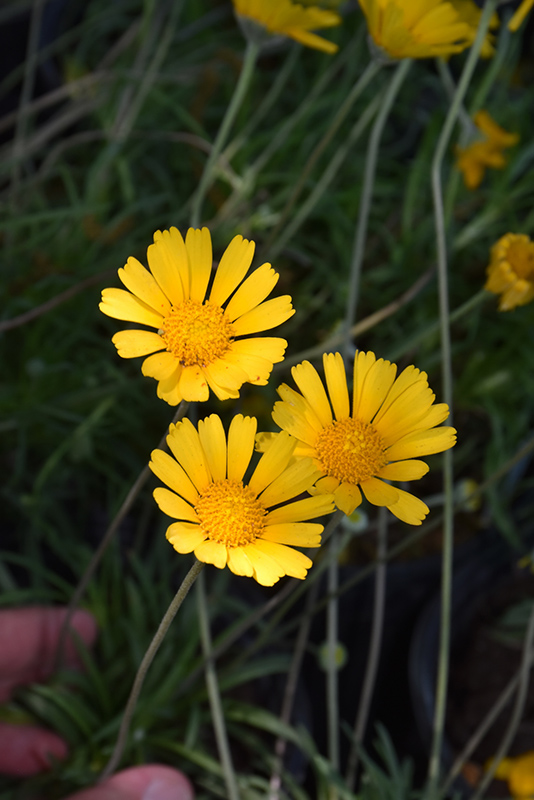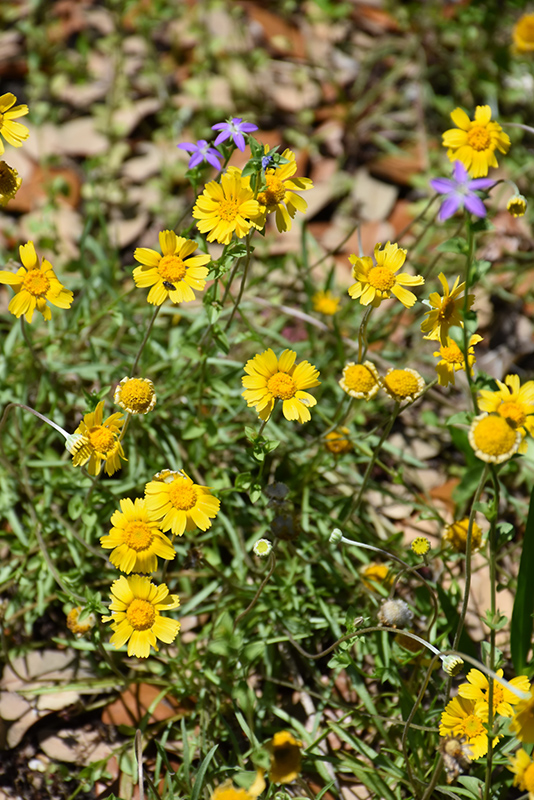Plant Height: 6 inches
Flower Height: 8 inches
Spacing: 8 inches
Sunlight:
![]()
Hardiness Zone: 4a
Other Names: Bitterweed, Hymenoxys scaposa
Description:
A cheery, bright-yellow rebloomer, perfect for xeriscapes, alpine and rock gardens; resistant to critters and attractive to butterflies; also known as Thrift-leaf Perky Sue, and Slender-stem Bitterweed
Ornamental Features
Four-nerve Daisy features dainty yellow daisy flowers with gold centers rising above the foliage from late spring to early summer. Its attractive tiny grassy leaves remain bluish-green in color throughout the season.
Landscape Attributes
Four-nerve Daisy is an herbaceous perennial with a mounded form. It brings an extremely fine and delicate texture to the garden composition and should be used to full effect.
This is a relatively low maintenance plant, and is best cleaned up in early spring before it resumes active growth for the season. It is a good choice for attracting butterflies to your yard. It has no significant negative characteristics.
Four-nerve Daisy is recommended for the following landscape applications;
- Mass Planting
- Rock/Alpine Gardens
- Border Edging
- General Garden Use
- Naturalizing And Woodland Gardens
Planting & Growing
Four-nerve Daisy will grow to be only 6 inches tall at maturity extending to 8 inches tall with the flowers, with a spread of 12 inches. When grown in masses or used as a bedding plant, individual plants should be spaced approximately 8 inches apart. Its foliage tends to remain low and dense right to the ground. It grows at a medium rate, and under ideal conditions can be expected to live for approximately 8 years. As an herbaceous perennial, this plant will usually die back to the crown each winter, and will regrow from the base each spring. Be careful not to disturb the crown in late winter when it may not be readily seen!
This plant should only be grown in full sunlight. It prefers dry to average moisture levels with very well-drained soil, and will often die in standing water. It is considered to be drought-tolerant, and thus makes an ideal choice for a low-water garden or xeriscape application. It is not particular as to soil type or pH. It is quite intolerant of urban pollution, therefore inner city or urban streetside plantings are best avoided. This species is native to parts of North America. It can be propagated by division.


